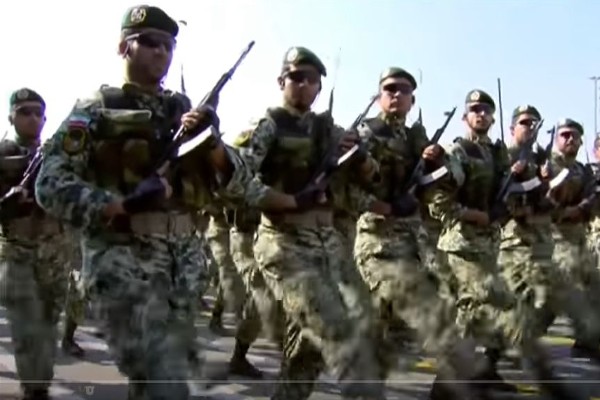The Biden administration will likely remove the IRGC from the US terror list.
When the U.S. began designating terror organizations in 1997, it was with several reasons in mind.
First and most importantly, the State Department’s Designated Foreign Terrorist Organizations simply underscores the threats posed by the listed groups.
But symbolism aside, the 73 groups currently on the terror list face real and meaningful consequences.
They are blacklisted from the U.S. banking system. Visa restrictions make it impossible for their associates to enter the U.S. to recruit people, raise money or carry out attacks. People doing business with designated terror groups face stiff prison sentence. The designation also makes it easier for the State and Treasury Departments to sanction specific individuals.
Which brings us to Iran’s Islamic Revolutionary Guard Corps, also known as the IRGC and its Farsi acronym, Sepah. The Biden administration appears likely to delist the IRGC to help clinch a nuclear agreement with the Iranians.
This would be a disastrous move.
The IRGC oversees Iran’s strategic weapons and nuclear program. It has its own aviation, naval and intelligence services and even operates its own news agency.
Its best-known branch, the Quds Force, is responsible for extraterritorial and clandestine operations. As such, it oversees Iran’s relations with terror proxies such as Hamas, Hezbollah, the Houthis and Iraqi militias. The Quds Force provides weapons, money, training and other support to these terror groups.
It has also been linked to plots against Israeli interests in far-flung locations such as Colombia, Cyprus, India, Azerbaijan, Thailand, Turkey, Kenya and more.
The Iranian regime and the IRGC show no signs of moderation. Delisting would only embolden the IRGC. The removal of sanctions and restrictions on oil sales will mean an instant windfall of billions of dollars for Iranian regime, the IRGC and their terror proxies.
Claims that delisting will moderate the IRGC don’t hold water. One of the first acts of Joe Biden’s presidency was to remove Yemen’s Houthi rebels from the same terror list. Administration officials said the designation made it impossible for the aid groups to provide assistance to Yemen, where millions of people in Houthi-held areas face the twin threats of famine and COVID.
But since the Houthis were delisted, it has become harder for humanitarian assistance to reach civilians. Emboldened, the Houthis frequently block emergency aid convoys from reaching critical areas, and on numerous occasions they have hijacked the deliveries, stealing food and medicine.
To say that curbing Iran’s nuclear program is more important than the IRGC’s terror status also misses the point. The JCPOA’s sunset clauses are nothing more than a brief delay in Tehran’s quest for an atomic weapon. Small wonder that furious officials in Saudi Arabia and the United Arab Emirates are refusing to accept Biden’s phone calls.
It’s bad enough the IRGC is going to pocket billions of dollars from the JCPOA. Even worse is that the Biden administration is about to remove the Mideast’s biggest sponsor of terror from its terror blacklist.
Demand that the U.S. not delist the IRGC.
Contact President Joe Biden through the White House website.
Contact Secretary of State Antony Blinken through the State Department website.

